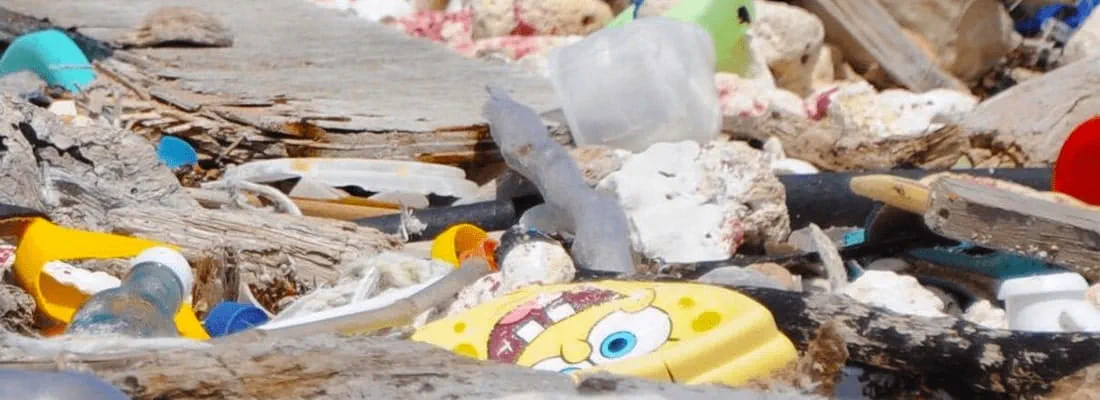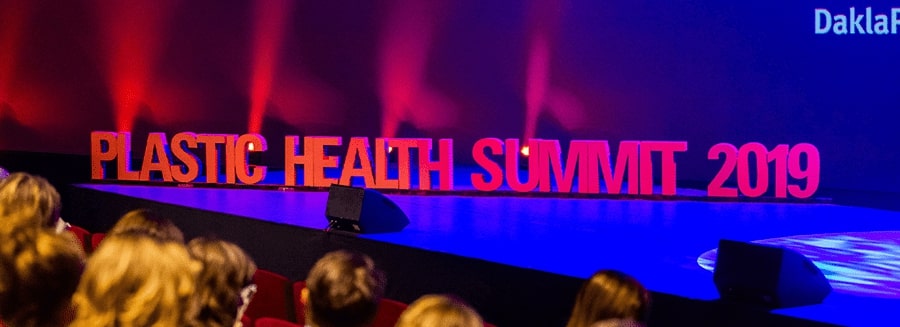I was privileged, shocked and motivated in equal measures to be at the very first Plastic Health Summit in Amsterdam recently, on behalf of METSTRADE. The event was organised by Plastic Soup Foundation and Parley for the Oceans, and I had been invited as a follow up to the #ReThink Plastic Workshop that I helped to organise for IFBSO (International Federation of Boat show Organisers) at their Congress back in June.
The event was extremely well organised with 9 hours of solid scientific evidence presented by academic researchers, and supported by testimonies from some knowledgeable and committed advocates and activists, who are helping to bring the facts about plastic pollution to the attention of the public at large.
Plastic, plastic everywhere
One of many facts I was not fully aware of, is that 35% of ocean microplastic pollution comes from micro fibres carried over from washing our clothes.
And, now there is no doubt, that micro and nano plastic particles are literally penetrating every part of our daily lives, it goes way beyond plastic pollution in the oceans, which is already an environmental disaster in itself. The evidence presented at the Summit confirmed that we are inhaling and ingesting plastic, and that it can even reach the placenta and potentially harm an unborn child!
When they burn (40% of the world's waste is burnt) they emit toxic particles, which are breathed in by humans.
The scientists and toxicologists were very clear, that more scientific evidence needs to be gathered (which needs urgent funding) before it can be conclusively proven that our health, and that of future generations is being damaged by Plastic pollution, but all of the indications are very strongly pointing that way.
This is a difficult message to deliver to the leisure marine community, after all we are a ‘feel good’ industry, offering relaxation and care-free time on the water. But surely, we all want to do something about this threat, nobody wants to feel powerless, and there are things that everyone can do. The easiest thing to do; simply stop buying products sold in single use plastic packaging!

People powered solutions
To see examples of what else is being done, let's look briefly at some of the positive actions that were presented at the Plenary Session of the Summit entitled, ‘Solutions.’•Troy Swope the CEO of Footprint sustainable technology, joined the Summit via video from the USA, and spoke about how his company is working to replace plastic packaging with more sustainable solutions. For instance, working with beer producers to replace plastic 6-pack rings with fiber that will last a matter of hours if discarded after use, and won’t pollute the oceans if it ends up there.
Footprint are also producing single use straws and coffee cups from non-plastic fibers, that are tough, liquid resistant and stand up to multiple end-of-life scenarios. “That means” says Troy, “you don’t have to second guess whether your trash goes in the garbage, the recycle, or the compost… Any Bin, You Win.”
•Mojca Zupan CEO of Slovenia based Planet Care introduced her organisation’s Microfiber Filter, which has been awarded the Ocean Clean Wash label by Plastic Soup Foundation. As mentioned earlier, the exponentially growing number of tiny synthetic microfibres in the environment can be found not only in our oceans, but also in our food and drinking water.
Planet Care have perfected a filter specifically designed to catch fibres shed from textiles and clothes during washing and drying. So, it can be easily fitted behind any washing machine (yes, even on a yacht.) Mojca said that her ultimate goal was to make the product affordable, and to offer a return service for the captured microfibers, which are then recycled into new materials. The product is available now, for a monthly subscription of just 9,95 euros per month, which includes 7 months’ supply of spare filter cartridges.
•And, announcing a ground breaking new app and campaign which can also be easily applied to life onboard a yacht, Laura Diaz Sanchez, and Madhuri Prabhakar from Plastic Soup Foundation, introduced the Plastic Diet concept for consumers, (and sailors!)
Just about everyone agrees that the current overconsumption of plastic must be reduced — not by banning all plastics, but by going on a ‘plastic diet’. We all need to go on a ‘plastic diet’: companies, retailers, governments, and individuals alike. For this reason, the Plastic Soup Foundation has developed the Ultimate Plastic Diet.
This diet provides you with the online tools to make a difference, starting with reducing the single-use plastics in your daily life. Quite simply, the guide walks you through the typical household (or yacht if that’s where you live, or spend a lot of your time,) and explains where, in each area of your life, you can reduce your plastic footprint.
For example: Click on ‘Kitchen’ (‘Galley’) and there are suggestions on how to make the zone as plastic free as possible. Click on ‘Bathroom’ (‘Heads’) and the plastic reduction suggestions roll out; covering items like, cosmetics, soaps, wet wipes, make up remover, cotton buds etc… Get the picture? And so on through all your other living zones, including Leisure, Travel, Garden and Household.
The objective is to make this diet easy, by walking hand in hand with you to help you reduce your overall plastic footprint. One item at a time.
Previous blog on this subject: Cleaner Ocean Campaigns
Photo's: Plastic Health Summit

